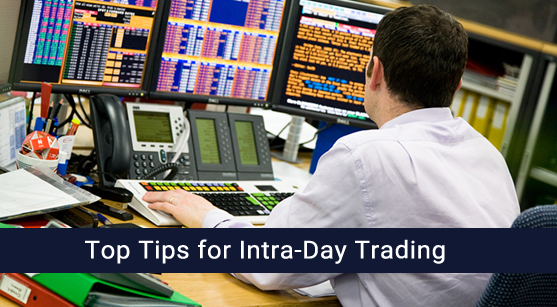People who wish to make a quick transaction at the stock market opt for intra-day trading. The period of possession is mostly just a few hours and if the decision is made correctly, you can walk away with a high return on investment. However, intra-day trading is not all that easy. People who wish to watch their money grow at a steady pace and don’t want to spend too much time in monitoring trades can opt for safer bets like long term (at least 7-10 years) investments or mutual funds.
There is large number of helpful trade brokers who primarily function online to cater to the tech-savvy crowd of today. They charge online trading brokerage according to the transaction amount or the number of transactions to make transactions faster and smoother between the clients, the brokers, and the counterparty apart from all the intermediary institutions and banks. The tips provided by these traders prove to be very helpful for beginners and even experienced traders, and here are the top ones for you:
- Trading amount – Intra-day trading carries the highest amount of risk so you should only trade with that much money that you are prepared to lose, especially if you are someone who functions on a tight budget.
- Liquidity – Index-based, large cap stocks are primarily the favourites of intra-day traders because they are the most liquid shares that can be squared at the end of the day. Choose 2-3 of them at one time, and no more, because you need to be able to keep a close track of them all day before you decide how you want to deal with them at closing time.
- Watch-list – Make sure you research about the companies that you have listed in your watch-list, understand the trading technicalities of their stocks apart from their performance, try and find out if they are planning any corporate actions in the near future (such as dividend pay-outs of mergers), and then find out how you can trade with their stocks. There are numerous sites, in addition to your brokers who can help you understand the support and resistance levels of their shares once you enter the stock price (which can be the low, high, or closing price).
- Fix targets – Decide the price at which you want to trade or the profits that you are expecting, the amount that you are willing to use to trade, and stick to your plan to trade without any emotional influences. Beginners especially lose their nerve or become over-confident which makes them diverge from their initial plan very quickly and make hasty, and poor decisions.
- Avoid investing – Trading and investing are very different from each other and should not be mixed up. While trading focuses only on the technical and current aspects of the stocks of a company, investing requires more thorough research about the principles on which a company runs and which they are likely to follow in the future too. The performance of the company is more important in the latter while stock performance matters in trading.
As they say, all forms of investment and trading are subject to market risks and must be thoroughly vetted before you proceed with them.

